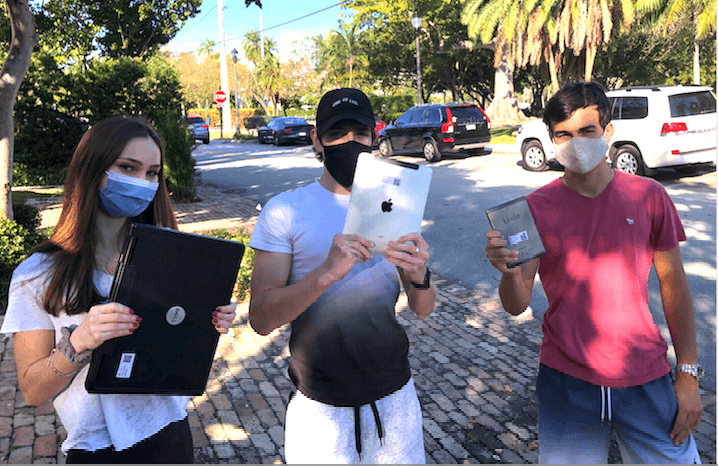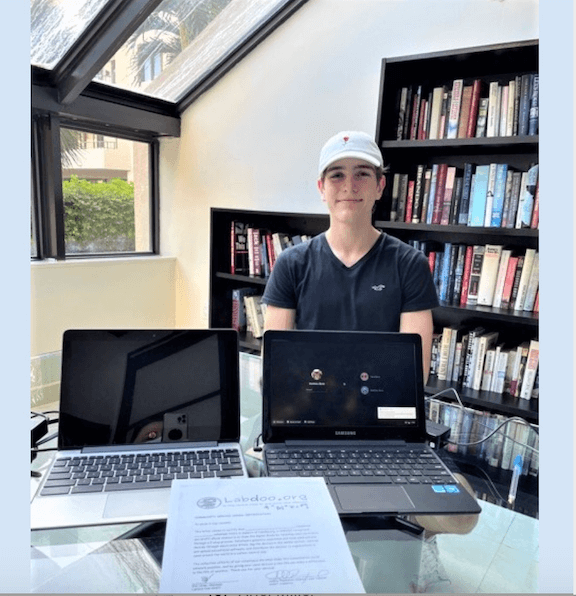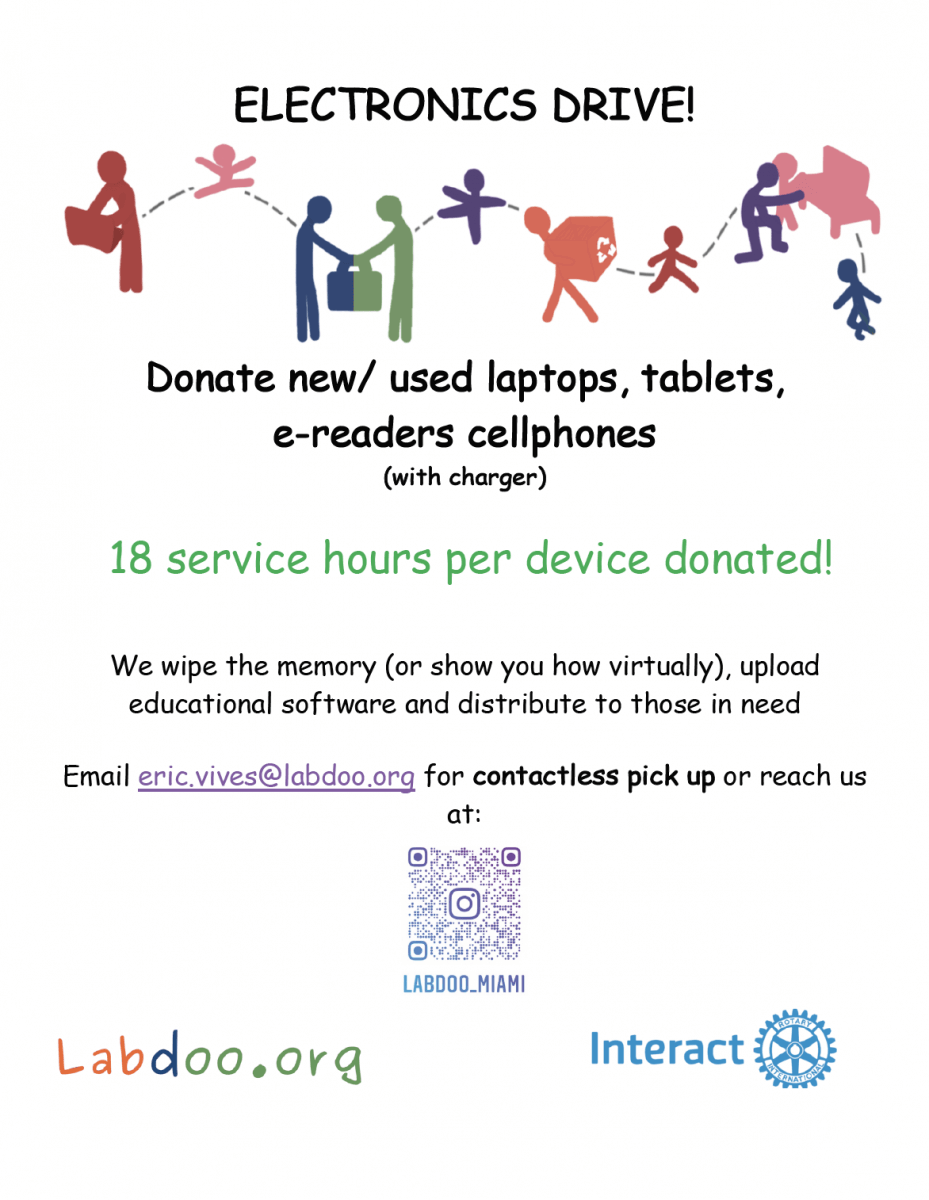Interactors Equip Schools, Divert E-waste

Interactors Equip Schools, Divert E-waste
Interact Club Launches Labdoo Hub to Equip Schools, Divert E-Waste
Location/Club: Club Name, District, State, Country
Keywords: Carbon-neutrality, Sustainable economies, Environmenatal Education, Renew, recycle, reuse
Description
Key Biscayne, Florida (USA), March, 2021. Undaunted by the pandemic, 17-year-old Eric Vives inspired his Interact Club at MAST Academy in Miami to embrace a quest to provide curriculum to schools worldwide and divert e-waste. They’re doing it as a hub for Labdoo.org, a non-profit global collaborative network that makes it easy for people to donate computers and tablets they are no longer using. After personal data are deleted and operating systems updated, Labdoo volunteers add a trove of educational resources that fit the needs of the requesting schools, and get volunteers who are already traveling in the direction of the recipient school to carry them, minimizing the project’s carbon emissions.
Living on Key Biscayne, an island in South Florida, “we know the ramifications of global warming,” Eric explains. The project is a perfect fit for MAST, a public magnet school which specializes in maritime studies, science and technology, and environmental awareness. Shown below: MAST Interact Club members Rachel Bass, Eric Vives, and Tomás Martinez.
Labdoo.org was created in 2010 by Jordi Ros-Giralt, a computer scientist in Barcelona, Spain who holds a PhD and MBA from the University of California. Labdoo.org is a 100% volunteer-run network of donors, travelers, and schools. Together they have already provided devices to over 600,000 students in 2,000 schools across 135 countries. Several participating sites serve refugees.
“A child in India could be brilliant, but without the opportunities, the next Einstein could be lost, affecting not only him, but humanity,” Eric says. “A child in Yemen could discover civil engineering and go on to develop housing for people in poverty.” The dedication of Ghanaian refugee Ousman, whose nonprofit partners with Labdoo to equip schools in Ghana, is one of the stories that moved Eric to propose the project to his Interact Club.
People and schools across the world connect via the Labdoo website, which can be read in Spanish, English, or German. Donors register devices on the site, sending a ping to hubs, whose volunteer managers arrange to pick them up. “In developed countries, these devices are everywhere,” Eric says. “A lot of our donors are parents who hear we students are doing this. They never thought about the problem. This brings it to their attention with a solution. That inspires them to spread the word.”
The project is financially sustainable for recipient schools because they can return devices that break down, and request replacements. Students don’t need the internet to access the educational materials. “Even in the richer developed countries many of the families we give the laptops to have only limited access to Internet or limited data plans that would rapidly consume their monthly quota,” Jordi wrote to Eric. “Downloading a single video from the Khan Academy can consume significant bandwidth. The Labdoo software comes with more than 50 GB of educational content including all Khan Academy, all Wikipedia, UNESCO educational content, and many classic books. All content is copyright-free.”
Eric learned about the project from his parents, who met Jordi in Barcelona. Discovering that the nearest hub had closed, Eric launched a new one in his own town. “A hub is simply a group of volunteers,” he explains, in this case, the MAST Interact Club. “Anybody can start one,” he says. “Volunteers can do as little or as much as they want. Simply sending a flyer to a group chat is helpful.”
Eric (shown above with laptops donated by a member of the Key Biscayne Rotary Club) manages outreach, volunteers, communications, and collecting donated devices. Fellow Interact member Tomás Martinez, also 17, does the software update to erase all personal data, or coaches donors through the process. Adapting to COVID, which hit Miami with devastating force, they offer contactless pick-up or drop-off.
Eric is crafting outreach and incentives that work well for students. He developed the flyer above with a QR code they can scan, landing them directly on the Hub’s Instagram page so they can message him directly, which is “a lot faster than typing an email address.” Students who donate a device receive a certificate awarding them 18 hours of community service credit, signed by the Interact Club advisor. “It’s a big thing to donate something like this which a student could otherwise sell,” Eric explains. To widen the network of volunteers and donors, he’s also reached out to students at Coral Reef Senior High School and the STEP Club (Students to End Poverty) at the University of Miami.
The MAST Interact Club’s experience demonstrates a practical way for humanitarians of any age to advance the Rotary goals of education and protecting the planet. The website makes it easy to donate or volunteer. But you can also contact Eric Vives, who will be glad to help you get started!


